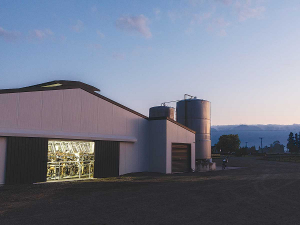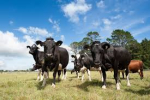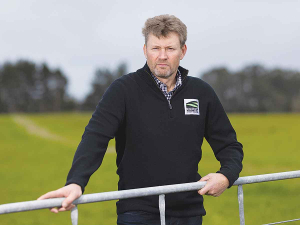OPINION: The statistics speak for themselves; the dairy industry remains the country’s star performer.
Recent Sense Partners analysis, for DairyNZ and Dairy Companies of New Zealand (DCANZ), shows the sector delivering $20 billion in export value to the year ending September 2020.
There is no doubt that dealing with the uncertainty and the ‘new world’ that Covid-19 has delivered has been a struggle. However, the industry has been one bright spot in this crisis.
Dairy accounted for almost 25c of every export dollar New Zealand generated in the past year. The sector employs 50,000 people and generated $3.4 billion in wages in 2019.
Dairy jobs are well paying, with median wages for both dairy processing and farming above those of comparable industries. The median wage for dairy farm workers ($52,700) is 9% higher than the median average for all agriculture jobs.
Exporting success has supported the dairy sector to continue growing its economic contribution, delivering $10.2 billion in value add to the economy in the year ending March 2020. While a significant proportion of export value comes from milk powder products, almost half comes from other products.
Across NZ, dairy contributes more than $100 million to gross domestic product (GDP) in all but two regions. The largest GDP contributions are nearly $2 billion in Canterbury and $2.5 billion in Waikato.
Dairy contributes at least $50 million in wages in 20 districts, and more than $100 million in wages in half of those.
Dairy makes up one third of all jobs in Waimate (South Canterbury), and more than one in every four jobs in south Taranaki and Otorohanga, also accounting for one of five jobs in Southland and more than one in 10 jobs in the Westland, Matamata-Piako, South Waikato, Clutha, Tararua and Ashburton districts.
Last season’s final payout of $7.14/kgMS and a 5c dividend from Fonterra means most farmers ended the season in the black.
This season’s forecast payout is hovering over $7/kgMS and with almost 70% of the season’s product already contracted to global buyers, another profitable year looms for many farmers.
But as this month’s ANZ Research says the recent focus on Covid-19 has highlighted the virtues of our primary industries but we can’t rest on our laurels.
We need to continue planning ahead to ensure our farm businesses are in a good position to withstand future financial shocks and also position our industry to take advantage of the growing focus on sustainability.
By all accounts the dairy industry is doing just that. The results speak for themselves.











